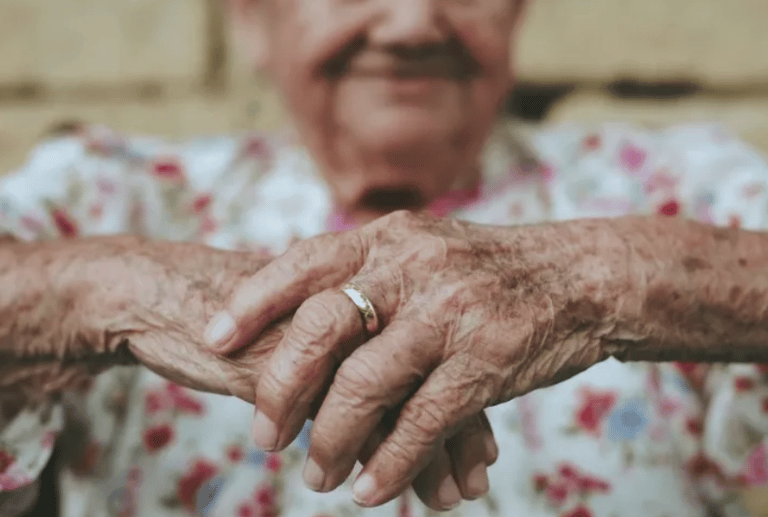don't wait. get your document notarized today! Call or text proactive mobile notary at 515-238-6201.
houston mobile notary | HOUSTON MOBILE INK CARD FINGERPRINT | HOUSTON MOBILE APOSTILLE | HOUSTON MOBILE I-9
Notarizing For Seniors
Hanh Le
9/30/2025


Notarizing for Seniors
There are no specific laws for notarizing for seniors who are confined to a hospital bed, nursing home, or their home. However, notaries must follow their state's commissioning laws to ensure the elderly signer is coherent, aware, and willing to sign any documents.
Here are some guidelines every notary should follow for elderly notarizations.
Confirm Valid Identification
Before a Houston notary public travel to a signing, please confirm that the signer has a valid form of identification. Many seniors may have an expired driver's license or non-driver ID because they no longer drive or were unaware it had expired.
The identification must be a current, government-issued photo ID such as a:
Driver's license
State-issued non-driver ID
U.S. passport
Confirm Valid Identification
Many seniors, not just in Houston, may have an expired form of identification because they no longer drive or were unaware that it had expired. To avoid issues at the signing, always confirm the type of identification that will be presented during your initial confirmation call with the signer or their family member.
The identification must be a current, government-issued photo ID, such as a:
Driver's license
State-issued non-driver ID
Passport
Expired identification is never acceptable. Confirming that the signer has a valid ID beforehand will save you time and prevent the need to reschedule, which is especially important for mobile notaries who travel.
The Signer Must Be Present
The elderly person must be present to sign the documents. Family members or caretakers cannot sign on their behalf, even if the senior is bedridden or in a nursing home. Agreeing to this type of request is considered fraud and violates notary laws.
Verifying Identity with Credible Witnesses
In Texas, if an elderly signer does not have valid identification, a family member can arrange for two credible witnesses to attest to the signer's identity. These witnesses must:
Know the signer personally.
Be present at the signing.
Swear or affirm the signer's identity.
Even with credible witnesses, the signer must still be physically present and show a clear willingness to sign the documents without assistance.
The Signer Must Be Coherent and Willing
When notarizing for an elderly person, especially one who is bedridden or in a care facility, the notary must be able to communicate directly with them. While a family member or caretaker may have requested your services, the notary must speak directly to the signer once the notary arrive.
Red Flags to Watch For
The notary must confirm that the signer is both coherent and willing to sign. Look for these red flags:
Lack of Communication: If the signer isn't responding to your questions or can't hold a two-way conversation, they may not be coherent enough to understand what's happening.
Interference from Others: Be cautious if a family member or caretaker answers questions for the signer or speaks over them. The signer must communicate with you on their own.
Signs of Coercion: Watch for any signs of pressure or force from family members or caretakers. The signer must show a clear, unassisted willingness to sign the documents.
At a minimum, the signer must be able to communicate without help, be aware of what's happening, and be physically able to sign their name.
Refusing to Proceed
If you notice any of these red flags, the notary must refuse to proceed with the notarization. The notary will clearly explain their reasons to the family member or caretaker. It's better to be safe than sorry. Ignoring these warnings could lead to the loss of the notary commission and even legal consequences for suspected fraud.
Common Notarization Documents
The most frequent documents requested for notary services for elderly signers in Texas are Powers of Attorney (POAs) and Living Wills.
Powers of Attorney (POAs): These documents, which can be downloaded from the internet, must be completed by the signer or their family/caretaker. A notary's role is not to draft or fill out the document but to verify the signer's identity and witness their signature. In Texas, a durable POA must be notarized to be legally binding.
Living Wills: A Living Will, also known as a Directive to Physicians, must be either signed in front of two qualified witnesses or notarized by a notary public to be legally valid in Texas.
Important Note: Notaries are not lawyers. It is illegal for a notary to give legal advice, explain the terms of a document, or assist in drafting or completing a document. The notary's role is strictly limited to the notarial act itself.
Need a Notary? Contact ProActive Mobile Notary Today!
For reliable and flexible notary services in Houston and surrounding areas, including Brazoria County, Fort Bend County, Waller County, and Montgomery County, ProActive Mobile Notary is here to assist with your important legal documents.
Why Choose Us?
Convenience: We come to you! Our service is designed to fit your busy schedule.
Wide Service Area: Serving Houston, Katy, Cypress, Richmond, Stafford, Missouri City, Sugar Land, Rosenberg, Fresno, Pearland, Pasadena, and surrounding areas in Harris and Fort Bend Counties.
Contact Us:
Phone: (515) 238-6201
Mobile Service: Schedule a time and place that fits your needs.
Home Office (by appointment): Rolling Creek, Houston, Texas 77084
Hours: 7 days a week, from 9:00 a.m. to 9:00 p.m.
Please remember that I am not a lawyer and cannot provide legal advice.
LEGAL DISCLAIMER:
I am not an attorney licensed to practice law in Texas and may not give legal advice or accept fees for legal advice. Under the Texas Admin. Code Rule § 87.40, A Notary Public is prohibited by law to act in the capacity of an attorney, give advice in preparing legal documents, issue identification cards, distribute confidential information or perform any notarial act unless the signer is present. Any questions about your documents should be addressed to the lender, title company, or an attorney. We are not a government agency and apostille authentication is power that the government has. The role of a notary is to authenticating signatures and providing courier services to clients for their apostille documents.
© 2025. All rights reserved.
ProActive Mobile Notary brings expert, affordable mobile notary and document services directly to you across Houston, Katy, Cypress, Richmond, Sugar Land, and surrounding areas in Harris and Fort Bend Counties. Founded in 2019, we offer convenient home visits for all your notarization needs, including real estate documents, wills, trusts, affidavits, and power of attorney. Beyond general notarization, we specialize in FBI ink fingerprinting, apostille services / document authentication, and I-9 verification. We're certified, experienced, and available after-hours and weekend for flexible scheduling, with a Texas notary embosser seal on hand. Prefer to come to us? Our home office is also available by appointment for your notarization needs.
THANK YOU FOR SUPPORTING MY SMALL BUSINESS! GOD BLESS AMERICA.


Hanh Le, OWNER of Proactive mobile notary, is a licensed and bonded notary public and notary signing agent in houston, texas that has been background checked and screened annually.
We are open 7 days a week | 9:00 A.M to 9:00 P.M | Mobile and non-mobile services available | By appointment only, please call or send text to 515-238-6201
Alief, TX | Cinco Ranch, TX | Cypress, TX | Fulshear, TX | Houston, TX | Jersey Village, TX | Katy, TX | Meadows Place, TX | Memorial, TX | Mission Bend, TX | Missouri City, TX | Pearland, TX | Pecan Grove, TX | Richmond, TX | Rolling Creek, TX | Stafford, TX | Sugar Land, TX | 77084 | 77043 | 77041| 77079 | 77095 | 77040 | 77094 | 77433 | Brazoria County | Fort Bend County | Harris County | Montgomery County | Waller County | Notary Near Me | Mobile Notary Near Me | Houston Mobile Notary


